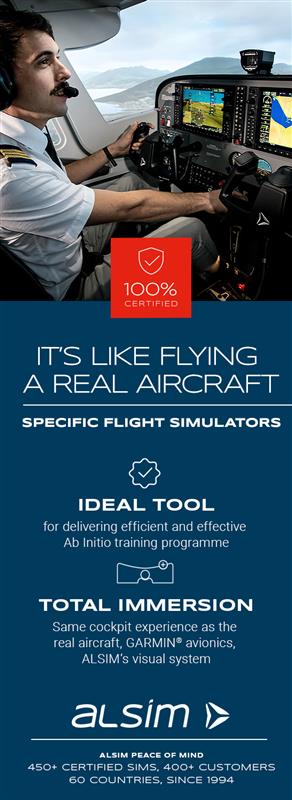Global Flight Training Group, Airways Aviation, Highlights the Changing Role of Pilots & Benefits of a University Degree
Airways Aviation, the one of the largest privately owned group of aviation academies in the world, published an article entitled “The Changing Role of Pilots in Modern and Future Airline Operations & Benefits of a University Degree“. Check it out below:
“The aviation industry has witnessed significant advancements in technology and operational practices, leading to a notable transformation in the role of pilots. The evolving responsibilities of pilots in modern and future airline operations are focused on the integration of soft skills with pilots skills and the management of complex systems.
This is a fact, and in Airways Aviation we advocate the relevance of a dedicated University degree in shaping the future pilot workforce.
Traditionally, pilots were primarily valued for their technical proficiency and flying skills. However, as aviation has become more complex, the importance of soft skills has gained prominence. Modern pilots are expected to possess excellent communication, leadership, and teamwork abilities. These skills enable them to effectively interact with passengers, cabin crew, air traffic controllers, technicians, and fellow crew members, fostering a safe and harmonious flight environment. Furthermore, pilots with strong decision-making,problem-solving, and situational awareness skills can handle unexpected scenarios and mitigate risks effectively.
The International CivilAviation Organisation (ICAO) and all worldwide Authorities are now moving to a new set of “Competencies” to evaluate a pilot, namely:
- Communication
- Workload Management
- Situational Awareness
- Knowledge
- Application of Procedures
- Flight Path Management Automation
- Flight Path Management Manual
- Problem Solving and Decision Making
The global call is “TIME FOR A CHANGE”.
Advancements in aircraft technology have led to the introduction of highly automated and computerized systems, shifting the role of pilots towards system management and supervision. Pilots are now required to have a comprehensive understanding of aircraft-integrated avionics, flight management systems, autopilot capabilities, and other automation tools, usually moving at 900 km per hour at 10,000 meters of altitude. They must be able to monitor and interpret system data, respond to alerts and warnings, and intervene when necessary to maintain the safety and efficiency of the flight, with attention to the economy of the flight and recently also to the environmental impact.
The aviation industry has recognized the importance of higher education in shaping well-rounded and knowledgeable pilots. While a university degree is not a mandatory requirement in most countries for becoming a pilot, it provides several advantages. A degree in aviation management or related fields equips aspiring pilots with the tools they need to handle and master critical thinking, analytical skills, and a broader understanding of the aviation industry, which are the most needed assets for pilots dealing with present and future operational challenges.
The role of pilots will continue to evolve in the future, driven by ongoing technological advancements and changing industry dynamics. The integration of artificial intelligence (AI) and machine learning in aviation systems may enhance automation further, reducing the manual tasks performed by pilots. However, the human factor remains crucial for decision-making, problem-solving, and handling unforeseen circumstances, emphasizing the importance of softskills and critical thinking abilities. Airways Aviation strongly believes in this necessary transition and has pioneered training programs that focus on developing these skills alongside technical competencies to prepare the pilots of the future.
In Australia, we started many years ago and we are now working together with different Universities like Southern Cross University, Griffith University, CQ University, etc.
In Europe, we have the privilege to work together with Montpellier Business School and its Aviation Research Centre “Chaire Pegase” providing a unique University pathway to professional pilots.
The changing role of pilots in modern and future airline operations reflects a shift towards a more holistic and well-rounded skill set. While technical proficiency and flying skills remain essential, the integration of soft skills, such as communication, leadership, and teamwork, has become increasingly important. The modern Captain is a great manager of systems.
Additionally, a University degree is not just providing management tools, a better theoretical foundation, and a broader understanding of the aviation industry, but it also granted the studentpilot a solid title for a future career within the airline organization and in the management world.
The industry’s outlook clearly indicates the evolution of pilot roles, where soft skills, management skills, critical thinking, and adaptability will play an integral part in maintaining safe and efficient operations, and Airways Aviation Academy is here to guide future pilots in the evolution of their profession.”
Source: Airways Aviation
Photo Credit: Airways Aviation (shown as meta image)
You may also check our Terms and Conditions for our Content Policy.
Searching for specific information – kindly contact us to see if we can assist you.
Check out the more than 18373 relevant pilot training industry updates here.




